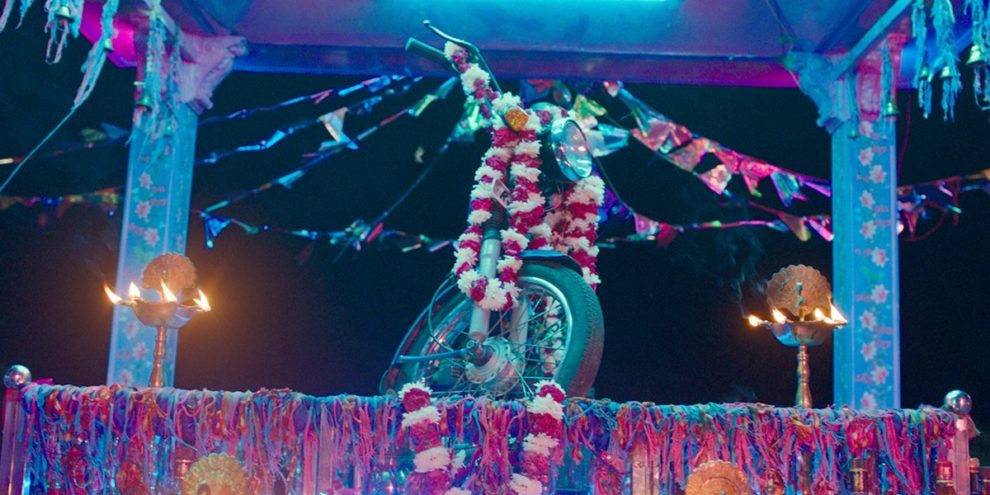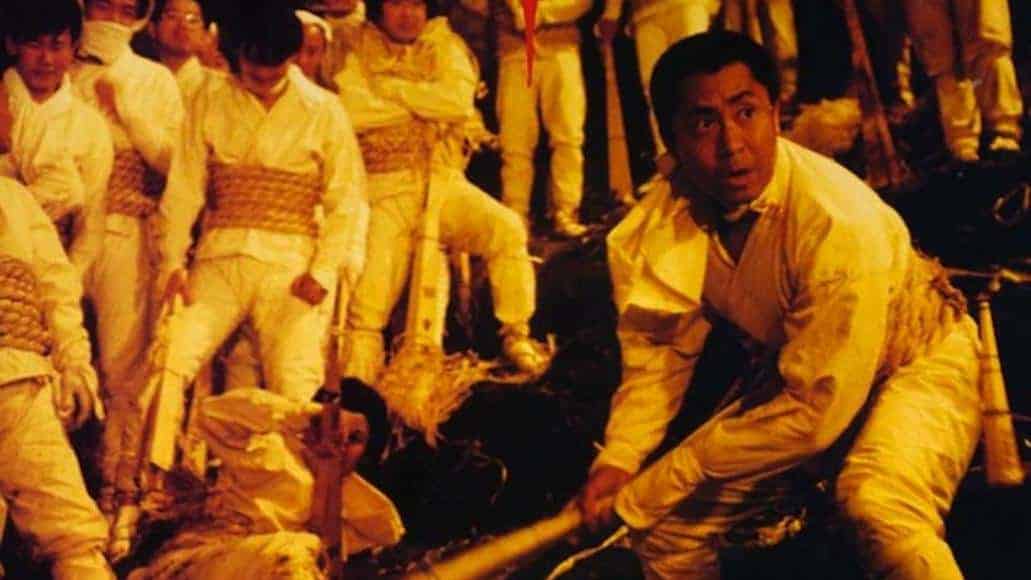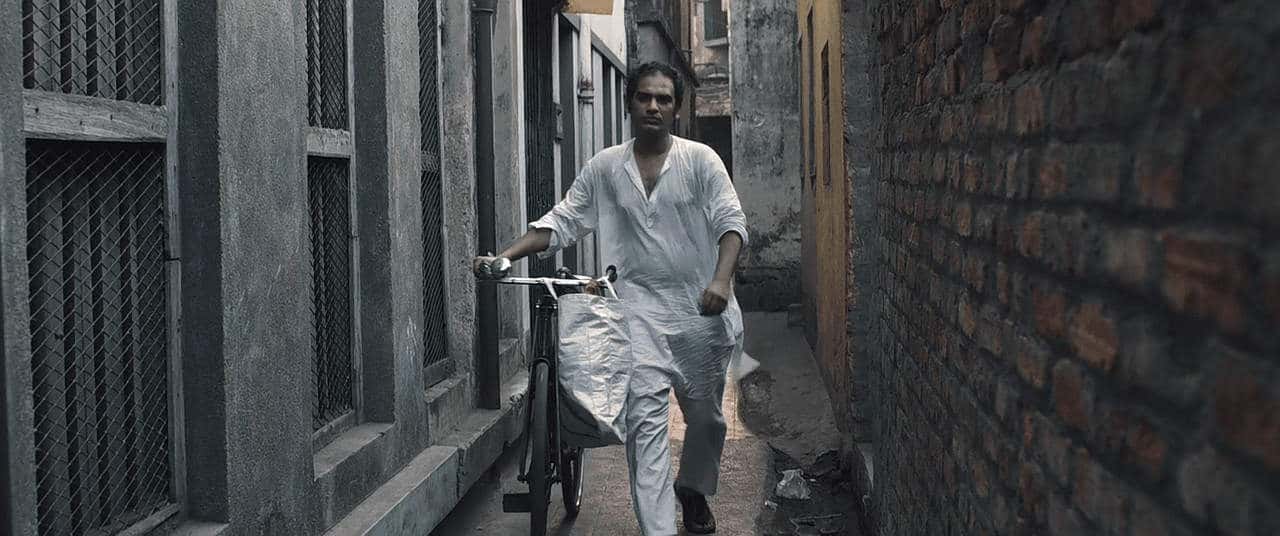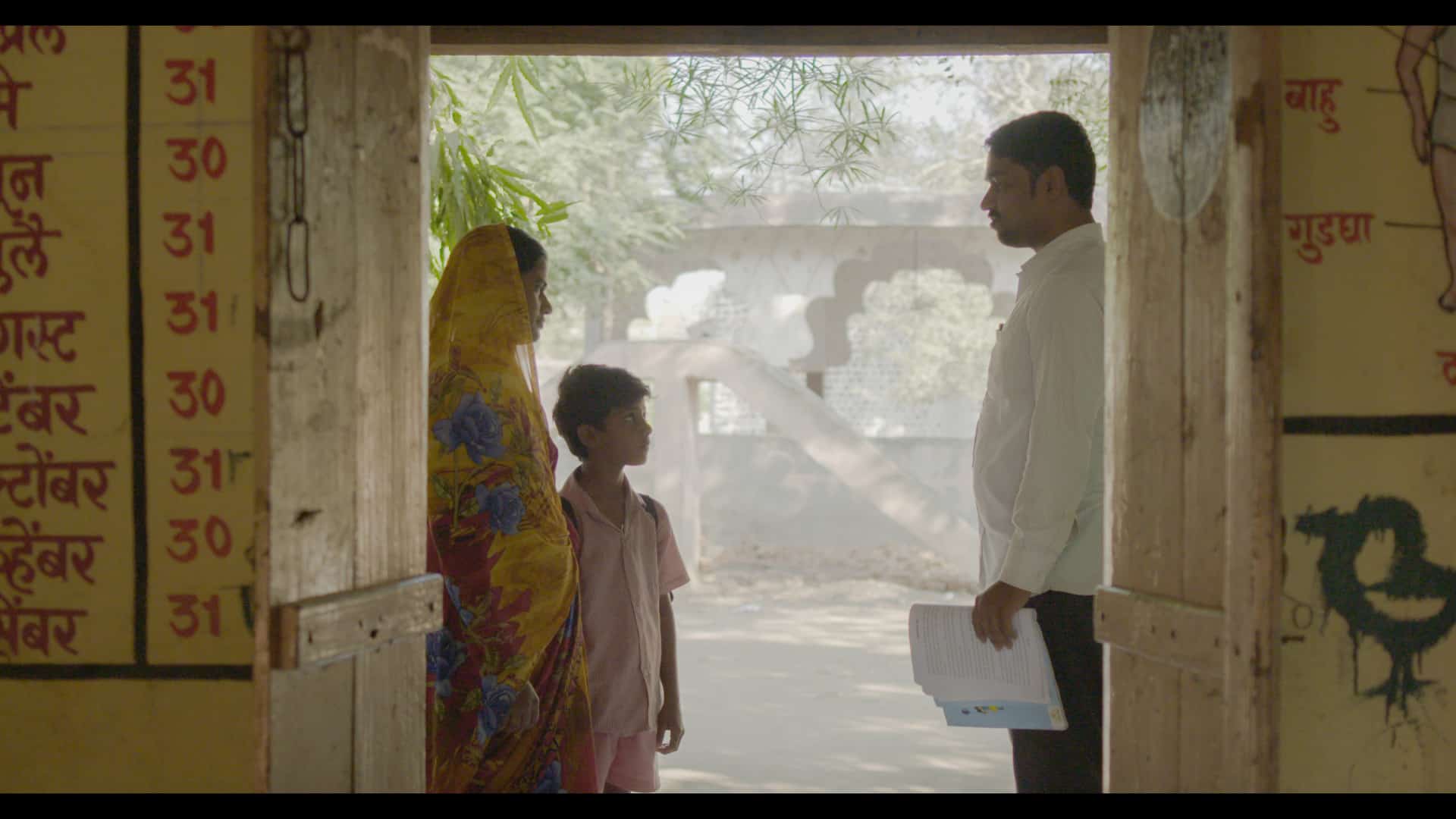In his debut feature “Dug Dug”, director Ritwik Pareek tackles a very divisive topic, the birth of a cult and later, a religion. But unlike some movies from recent history that have explored similar themes (“The Master” comes to mind), it does it with a sense of fun and ebullience. “Dug Dug” premiered at the Toronto International Film Festival.
“Dug Dug” is screening at the Indian Film Festival of Los Angeles
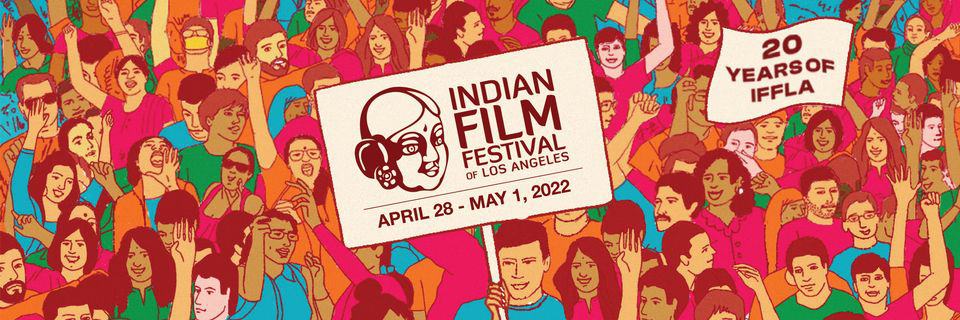
Thakur (Altaf Khan), a drunken motorbike rider, dies in a gristly traffic accident. His beat blue and pink bike gets towed to the police station, where it is destined to rot. Only that next day it is nowhere to be found in the police premise because it has miraculously teleported at the scene of the incident. It is brought to the station again, only to disappear the next day. The strange behavior of the inanimate object gets the attention of the citizens who begin worshiping it. Like that, a new religion is born.
Because of its narrative structure and continuous use of elliptical editing, punctuated with the repeated image of expanding balloon, “Dug Dug” feels like a long montage. We listen to the frantic music and watch the new religion grow exponentially, just like the pink balloon often shown on screen, waiting for it to burst. But it never does. If anything, its expansion makes it stronger and more entrenched in the community's life, as is the case with actual religions. But we still are looking forward to it bursting. After all, we are used to the traditional language of film storytelling.
“Dug Dug” seems to revel in messing with our expectations. It does that from the first minute of its runtime to the last. In the beginning, we are anticipating Thakur to die from the first second he starts to drunkenly drive his blue-and-pink motorbike home. Pareek even playfully promises us that he is going to perish soon, but just like the religion he later influences, the drunk driver survives. Until he is brutally (and unbelievably idiotically) murdered under a menacing and suspicious-looking billboard. Is there any connection between the death of the man, the weird teleportation of his bike, and the magician on the ad? Pareek seems to imply that there must be, but there isn't. It's just another red herring in a movie filled with them. This naughty playfulness, coupled with the liberal quoting of directors like Wes Anderson and Quentin Dupleux, among others, makes for a very fun watch.
Pareek's movie doesn't really have any notable characters, either. Not in the traditional sense, at least. There are no heroes, protagonists, or villains. No character development, either. Instead, there are masses of devotees, led by a set of paper-thin personae – the policemen, the politician, the lowly brahmin, the high-ranking and respected religious leader. All of them are barebones and undergo no change for the duration of the movie (save for one policeman), but there seems to be a reason for that. Thakur's religion needs no charismatic leaders, no religious organizations to control it and fight for it. Instead, it flourishes on belief in and myth of the dead drunkard and the magic transformation and transportation of his blue and pink bike. So, if there are any real main characters, it is the old bike. And Pareek plays with that quite a lot, framing its flashlight to look like a big all-seeing eye, even animating its front to appear alive. It's a bit eerie, especially for the viewers who have seen “Rubber.”
Despite its playful tone and naughty behavior, at its core “Dug Dug” is a serious exploration of modern religion. It traces how many religions, both past and present, are created out of misunderstanding or lie, and how they develop and spread, especially if for some reason they resonate with the people. And Thakur's religion does to an unbelievable degree. It is modern and reachable, its deity is someone close to the people, both in his interests (his only interests are alcohol and cigarettes, as his cousin says at one point), social status, and life. But what truly manages to make the new religion trend is its focal point of worship – a trusty old bike not unlike that of many of his millions of devotees. The connection between the inanimate object so many Indians need for their daily lives and the focus of their belief would have been a very interesting one to explore. But this is a topic for another, more serious, and possibly grimmer, movie, not “Dug Dug”. This one is pretty good as is.


